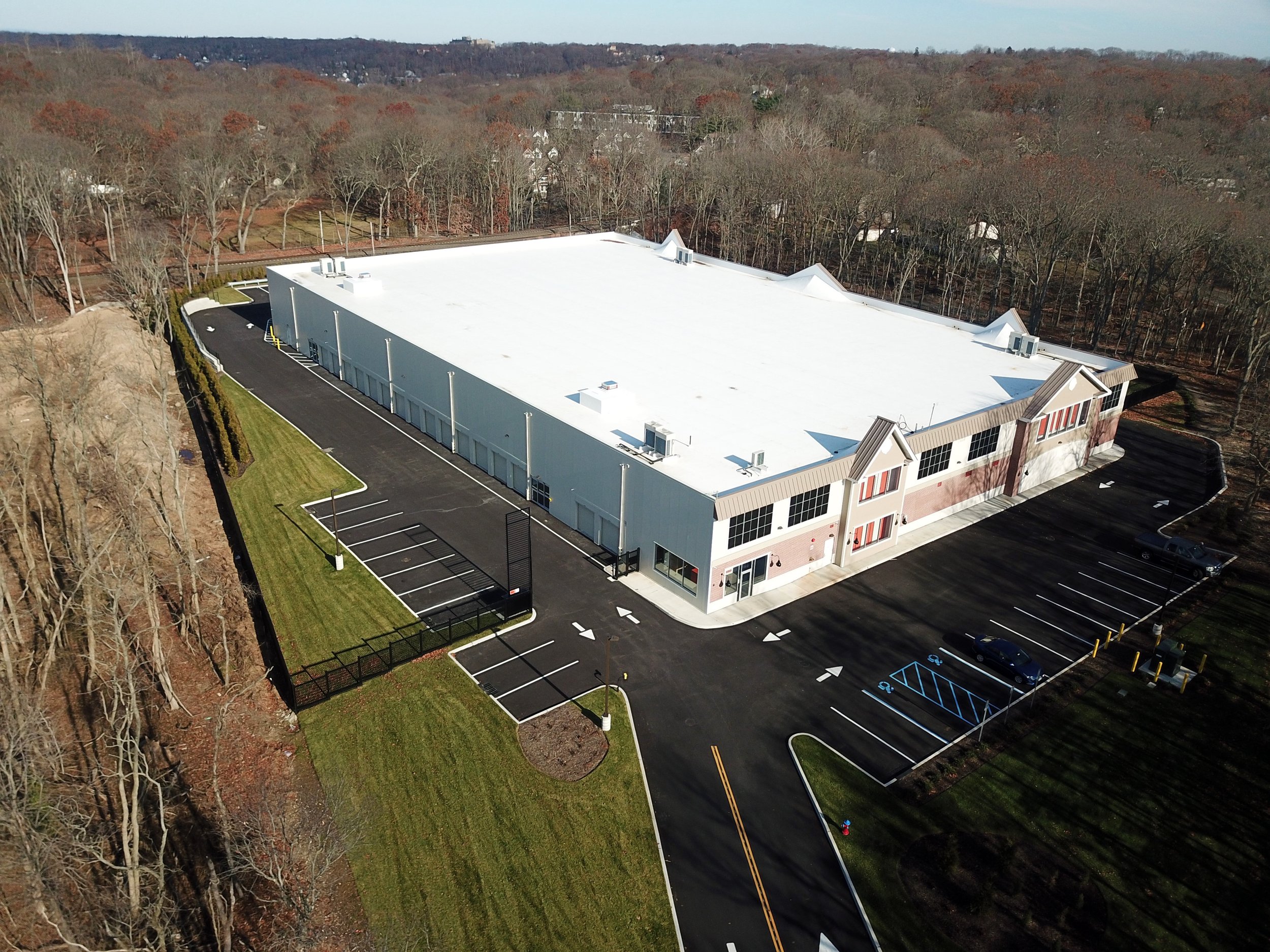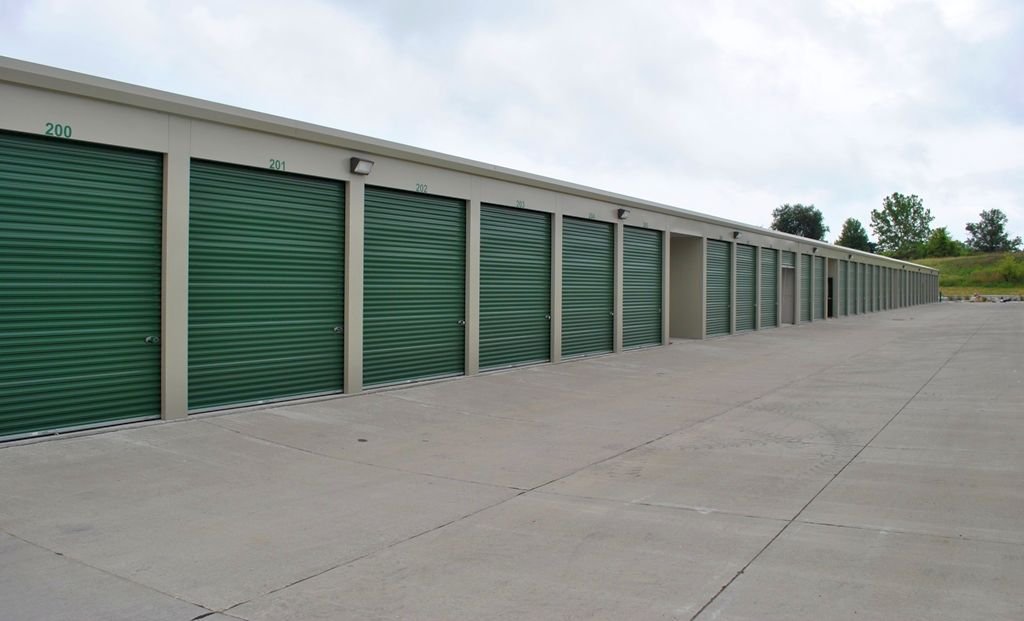Maximize Your Returns with Self Storage Investing
It’s little wonder that more people than ever before are interested in investing in self-storage businesses. After all, the self-storage industry is proving to be remarkably robust, and with ever-increasing demand for affordable storage spaces and units, there’s significant optimism that the self storage market industry’s market size will continue to grow in the coming years.
As with all investments, it’s important to have a solid grasp on self-storage investing before you make the jump into this potentially profitable investment sector.
There’s more than one way to invest in storage units; you can either own and operate your own facility, or you can be a passive investor, in which you’ll play no active role in the day-to-day operations of the business.
The information that we’ve included in this article is applicable to both kinds of self-storage investing. We’ll focus on the general possibilities of investing in storage units, as well as you guide some valuable information about how you can get started, including buying an existing storage facility.
Self Storage Investing: A Lucrative Opportunity
There’s been a lot of buzz around self-storage investing, and with good reason — while there’s no such thing as a sure bet, self-storage has proven to be one of the more stable industries on the market, and with a lot of anticipated growth in the coming years, it’s something that experts expect to continue.
So let’s break down exactly why self-storage investing is considered a lucrative opportunity:
It’s Relatively Low Risk
We say relatively low risk because there’s always a risk when you’re investing. Self-storage units offer a more robust ROI than other investment strategies, and that’s in large part due to the low operational costs of such businesses.
The low expenses of storage units allow for high-profit margins — they’re generally around 40% — which means the whole business model is better equipped to absorb fluctuations in demand.
Plus, there’s little risk of non-paying customers. A client that stops paying forfeits the contents of the unit (after a period of time), ensuring that the business still gets paid.
There’s Demand
People have always needed storage units, and likely always will. Businesses use them, students rent them, homeowners store their excess belongings in them when downsizing and decluttering, and more.
If you can find the right number of storage spaces and units to offer, then you’ll likely find that you’re operating many storage facilities at full or near-to-full capacity.
It’s a Robust Industry
Some industries hit the skids during moments of economic downturn. Storage units, by contrast, tend to thrive regardless of the economy. During poor economic periods, people use storage units to store belongings while in between homes or during business closure, and during good economic periods all businesses tend to thrive!
Are Storage Units a Good Investment?
What’s considered to be a ‘good’ investment is subjective, and will depend on what the investor is looking for, the level of risk they’re willing to take, and so forth.
But if we can talk in general terms, then we’d say that self-storage investing is considered a good investment, and there’s a simple reason why: it can offer a good return on investment. While there’s always a risk attached to investing, the risks of investing in self-storage are lower than other types of investing.
After all, the numbers don’t lie. There’s increasing demand for storage units and these types of businesses tend to have high profit margins, which makes for a pretty strong combination from an investor’s perspective. That the industry has performed well over a long period of time is further evidence that it’s a good investment.
How to Invest in Storage Units: A Beginner's Guide
Curious about investing in storage units, but don’t know where to start? While investing in storage units shouldn’t be considered easy, it is certainly easier than other types of investing. Our tips below refer to people who are considering opening their own self-storage facility or who are considering being a silent investor in a new self-storage project.
Before you start investing, keep the following in mind:
Assess the Demand
There’s a lot of demand for storage units, but that demand isn’t evenly distributed everywhere. It’s high in urban areas, and virtually non-existent in remote areas.
When you’re considering investing in a self-storage facility, you’ll need to factor in the location of the site, the demographics, the competition, and whether the population will grow or decline in the coming years, among other details.
The Numbers
The profit margin for storage units lies around 40%, but you’ll need to spend a lot of money before you get to that stage. There’ll be the cost of the site, startup costs, fitting out the space, and costs of running the business (staff, software systems, and so forth). You should have a solid grasp on the number of customers you’ll need to turn a profit along with a sustainable pricing strategy.
The Long Term
You should expect your investment in the storage unit to be long-term, but it’s worthwhile considering your exit strategy before you fully commit. Do you plan to scale your business? Sell it once it’s off the ground and turning a profit?
These are decisions that you’ll have to make at some point down the line, so it’s best to think of them at the earliest stage since your end goal will determine your investment approach.
Buying a Storage Facility: Tips and Advice
Another option is to buy an existing storage facility. This has a number of advantages over starting a new storage business, most notably that all the infrastructure will already be in place and there’ll likely be a steady stream of customers.
Of course, buying a storage facility is not a fast track toward success. Done incorrectly, it can be a disastrous move — for instance, buying a crumbling self-storage facility that requires a lot of work would be a much worse investment than starting your own. If you’re thinking of buying a storage facility, keep the following in mind:
The Location
You should assess the location of the storage facility in the same way you would look at a site for a prospective storage unit.
If you wouldn’t open a new storage facility at the location, then you shouldn’t buy one that’s already there either — you can change a lot about a storage facility once you’ve got your hands on the keys, but you can’t change the location!
As well as analyzing the site’s current site reputation, consider its future reputation; if it’s an up-and-coming area, for instance, then there may be something to work with.
The Condition of the Facility
An existing storage facility will be a bad investment if it has major structural issues that will need addressing in the coming years. In addition, check that all the amenities of self storage facilities, including lighting, CCTV, access codes, and so forth are in working condition.
Dive Deep Into the Numbers
It’s risky to take the seller’s word for how great of an opportunity their business is. They’re trying to sell it, after all.
Be sure to take a close look at the numbers and perform your own due diligence. Having a long customer list is all well and good, but if those customers pay late — or even not at all — then there’ll be an additional level of risk.
Is Self Storage a Smart Investment?
Given the demand for self-storage units along with the relatively low overhead costs and high profit margins, self-storage is generally considered to be a smart investment.
While there’s no such thing as a sure thing, the industry has proven to be robust and profit-making, making it an ideal investment opportunity for risk-averse investors.
Investing in Storage Facilities: Pros and Cons
Pros:
Can provide a steady revenue stream
There’s a high demand for storage units
There are minimal/low maintenance costs and tasks.
Good ROI with 40% profit margins.
Facilities are versatile and can be adjusted according to market demands.
Cons:
Competition can be fierce in certain areas.
Old facilities can require expensive updates to bring them in line with modern standards.
Storage Investments: Worth the Risk?
Investing in self-storage units is generally considered a good investment precisely because it comes with comparatively low risk. If you’re looking for a way to build a reliable revenue stream and you’re willing to put the work in, then self-storage investment can be an excellent option.
Self Storage Investing for Beginners: Where to Start
There’s more than one way to get into self-storage investing. All of them have their advantages and disadvantages, and some are better suited for beginners than others.
For example, for complete beginners, it is normally best to buy an existing self-storage facility rather than building a new one from scratch.
Stepping into a fully-fledged storage business will allow you to get to grips with the industry, all the while making money from the get-go.
The big money usually rests in building your own business, but you have to walk before you can run — and you can always open your own storage business later down the line once you have experience.




